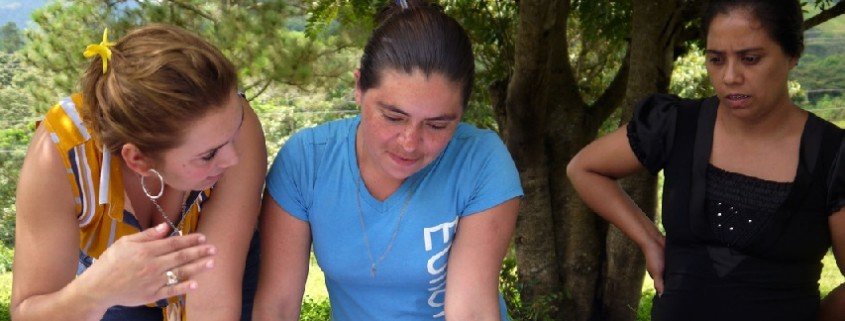CEPAD Fights Violence Through Education
“Some women live in complete marginalization from their husbands, and they don’t have the option to learn and open their eyes to understand that they are living in maltreatment in their own homes,” said Aida Luz López Rivero, who lives in the El Chamorro community near Pantasma. “The house becomes a cell.”
Domestic violence is a serious problem in Nicaragua’s rural communities, agreed the women, and one they want to help solve. The women said they don’t believe violence is in mens’ natures or a natural part of relationships, though it sometimes seems that way. They said women often don’t report violence because they are scared of retaliation or because they don’t believe the authorities will help. Technology has helped some women – because many people in rural areas now have cell phones, women can report abuse or reach out to help more discreetly.
The women at the workshop displayed fiery optimism that they can reduce violence in their communities through education and activism. When CEPAD does trainings like this one, we charge the women with going into their communities to teach others what they have learned. The women in Pantasma had many ideas for how to educate their neighbors about the law, including going door to door to have conversations, painting an anti-violence mural in the community, and doing workshops at schools and churches.
“We need to construct households where if one person has rights so does the other,” said Escarlen Lisseth Irias Chavarrio, who works on a campaign in her community called No Mas a la Violencia.
The Ley 779 is back in the news after efforts to modify or reinterpret the law to allow “mediation” between a woman and her abuser as part of an abuser’s sentence. Feminist groups are actively fighting such changes, saying it puts women in danger if they are forced to meet with their abusers.


Leave a Reply
Want to join the discussion?Feel free to contribute!